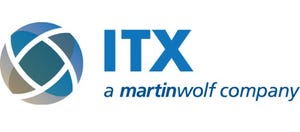Selling Your MSP: Strategic vs. Financial BuyersSelling Your MSP: Strategic vs. Financial Buyers
Strategic buyers and financial buyers both offer unique advantages, but there are key differences that should be considered when deciding which type to select.
March 22, 2023


Tim Mueller
Selling your MSP is a complex process requiring careful consideration of multiple factors, including the type of buyer that’s right for your practice. The two most common types of buyers for MSPs are strategic buyers and private equity firms (otherwise known as financial buyers). While both offer unique advantages, there are key differences that should be considered when deciding which type to select.
Strategic Buyers
A strategic buyer acquires MSPs with the intention of achieving long-term business goals beyond short-term financial returns. This type of buyer is typically a larger company looking to expand its market share, diversify its product offerings or increase its operational efficiencies through the acquisition of complementary businesses.
Think: Instagram being acquired by Facebook or Exact Target being acquired by Salesforce.
Here are some advantages and disadvantages of selling your MSP to a strategic buyer:
Advantages
Higher valuations: Strategic buyers often place a higher transaction value on an MSP than private equity firms.
Potential for synergies: Strategic buyers focus on synergies with your MSP by combining it with their existing operations.
Longer-term partnership: Strategic buyers are often looking for a long-term partnership, which can be beneficial if you are looking for a buyer that is willing to invest in the long-term success of your business.
Disadvantages
Less control: When selling your MSP to a strategic buyer, you may have less control over the future direction of your business.
Longer sales process: Selling your MSP to a strategic buyer can be a longer process than selling to a private equity firm. This is because strategic buyers may take more time to evaluate your business and negotiate a deal.
Cultural differences: There may be cultural differences between your MSP and the strategic buyer.
Private Equity Firms
Financial buyers are investors that acquire companies with the intention of generating a return on their investment through financial means, such as increasing the company’s profitability, selling it at a higher valuation or taking it public through an initial public offering (IPO). Private equity firms are a specific type of financial buyer that typically raise capital from institutional investors, such as pension funds and endowments, and high net worth individuals to acquire and manage companies.
Here are some advantages and disadvantages of selling your MSP to a financial buyer:
Advantages
Faster sales process: Selling your MSP to a private equity firm can be a faster process than selling to a strategic buyer.
Greater control: When selling your MSP to a private equity firm, you may have greater control over the future direction of your business. Private equity firms are often more hands-off.
Operational expertise: Private equity firms often have significant operational expertise and can provide valuable guidance and resources to help your MSP grow and scale.
Rollback equity: Rollback equity, also known as “upside equity,” refers to the equity ownership stake that the management team or other key employees of a seller receive in a new private equity-backed company created after a transaction. As part of the deal, the management team of the MSP may receive a percentage of the equity ownership in the combined entity, which is often referred to as “rollover equity.”
Disadvantages
Lower valuation: Private equity firms may offer a lower initial valuation for your MSP than strategic buyers. This is because private equity firms are typically focused on generating a return on their investment within a few years.
Shorter-term partnership: Private equity firms are typically looking for a shorter-term partnership, which can be a disadvantage if you are looking for a buyer who is willing to invest in the long-term success of your MSP.
Limited resources: Private equity firms may have limited resources compared to strategic buyers. This can make it more difficult to achieve growth and scale your MSP.
The decision to sell your MSP to a strategic buyer vs. a financial buyer will depend on your unique situation and goals. It is important to carefully consider the strengths and weaknesses of each type of buyer and to work with a team of experienced advisors to help guide you through the process.
Tim Mueller is president of MartinWolf. With more than 230 transactions closed in the IT-enabled space, martinwolf has deep subject matter expertise in selling Managed Service providers. The firm has closed transactions in 25 countries, creating a total transaction value of more than $6B (USD).
This guest blog is part of a Channel Futures sponsorship.
About the Author
You May Also Like



